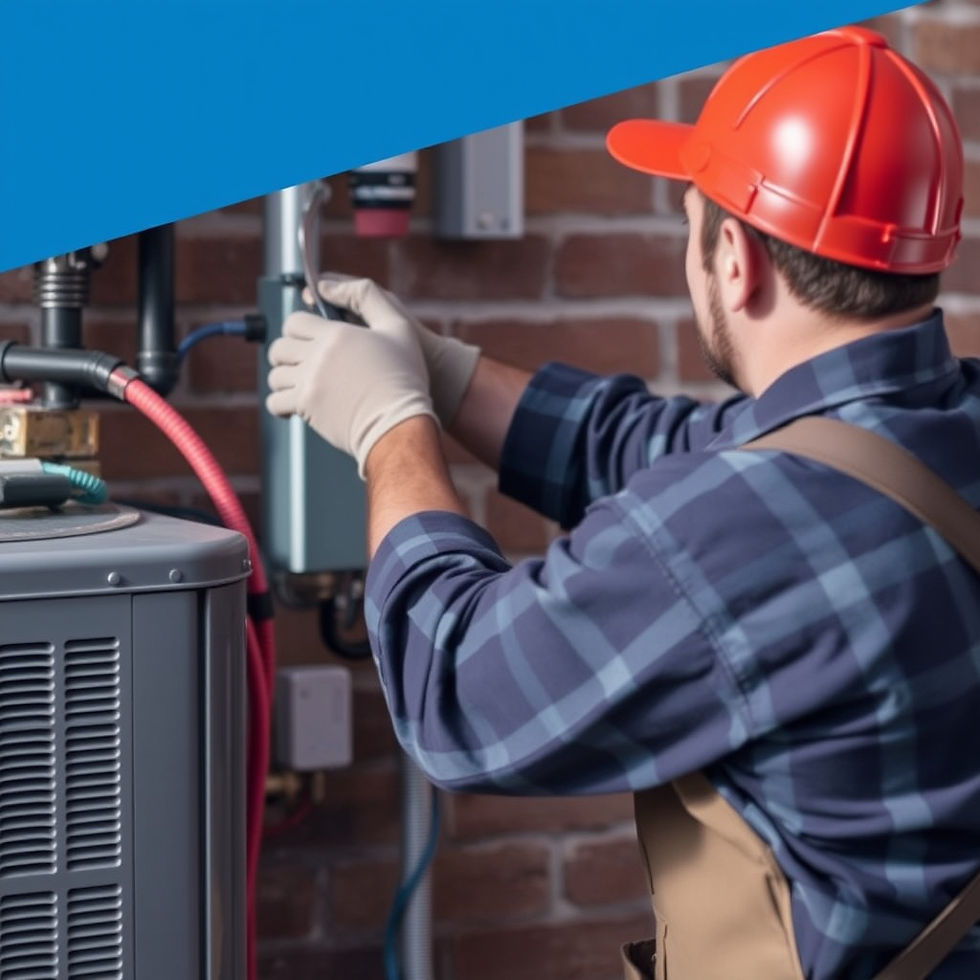Common HVAC Problems in Georgia and How to Troubleshoot Them
- dmaling9
- Sep 21, 2024
- 3 min read
Common HVAC Problems in Georgia and How to Troubleshoot Them

Living in Georgia means dealing with hot summers and occasional cold snaps, making a reliable HVAC system essential for comfort. However, like any system, HVAC units can run into problems. In this blog post, we’ll identify some common HVAC issues specific to our Georgia climate, provide troubleshooting tips, and guide you on when it’s time to call in a professional!
1. Air Conditioner Not Cooling Properly
Symptoms:
- Inadequate cooling
- Warm air blowing from vents
Troubleshooting Tips:
- Check the Thermostat: Ensure it’s set to “cool” and that the temperature is lower than the current room temperature.
- Inspect Air Filters: Clogged filters can restrict airflow. Clean or replace filters every 1-3 months, especially during peak usage.
- Look for Blocked Vents: Ensure that furniture or curtains aren’t obstructing air vents.
When to Call a Professional:
If these steps don’t resolve the issue, there may be a refrigerant leak or a malfunctioning compressor that requires expert attention.
2. High Humidity Levels Indoors
Symptoms:
- Uncomfortably sticky air
- Condensation on windows
Troubleshooting Tips:
- Check Your Dehumidifier: If you have a separate dehumidifier, ensure it’s functioning properly.
- Inspect Your AC Settings: Running the air conditioner on “auto” rather than “on” can help manage humidity levels better.
- Ventilation: Use exhaust fans in kitchens and bathrooms to help expel humid air.
When to Call a Professional:
If humidity remains high despite these measures, a professional can assess your HVAC system’s capacity to manage humidity effectively and suggest upgrades if necessary.
3. Uneven Heating and Cooling
Symptoms:
- Certain rooms are too hot or too cold compared to others.
Troubleshooting Tips:
- Adjust Vents: Make sure all supply vents are open and unobstructed.
- Check Insulation: Poor insulation can lead to uneven temperatures. Look for drafts around windows and doors.
- Thermostat Placement: Ensure the thermostat is centrally located and not near heat sources or drafts.
When to Call a Professional:
If problems persist, it may indicate issues with ductwork or system sizing that require professional evaluation.
4. Strange Noises from the HVAC System
Symptoms:
- Banging, rattling, or squeaking sounds when the system operates.
Troubleshooting Tips:
- Inspect for Loose Parts: Check for loose panels or screws on the HVAC unit.
- Look for Obstructions: Debris in the outdoor unit can cause unusual noises. Clear any leaves or dirt around the unit.
- Check the Fan: Ensure the fan blades are not obstructed and are functioning correctly.
When to Call a Professional:
If the noises continue or worsen, it’s best to consult an HVAC technician, as they can diagnose and fix mechanical issues.
5. Frequent Cycling On and Off
Symptoms:
- The system turns on and off frequently, not maintaining a steady temperature.
Troubleshooting Tips:
- Inspect the Thermostat: Ensure it’s functioning properly and located away from heat sources or drafts.
- Check the Filters: Dirty filters can cause the system to overheat and cycle improperly.
- Ensure Proper Size: An HVAC system that is too large for your home can cause short cycling.
When to Call a Professional:
If the problem continues after these checks, it may require an HVAC specialist to evaluate system sizing or possible electrical issues.
Being aware of common HVAC problems and knowing how to troubleshoot them can save you time and money. However, some issues are best left to the professionals. At Acomfort HVAC, we’re here to help you with all your HVAC needs, from routine maintenance to emergency repairs.




Comments